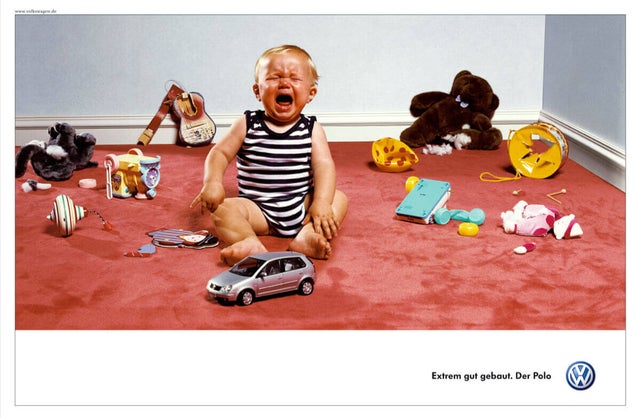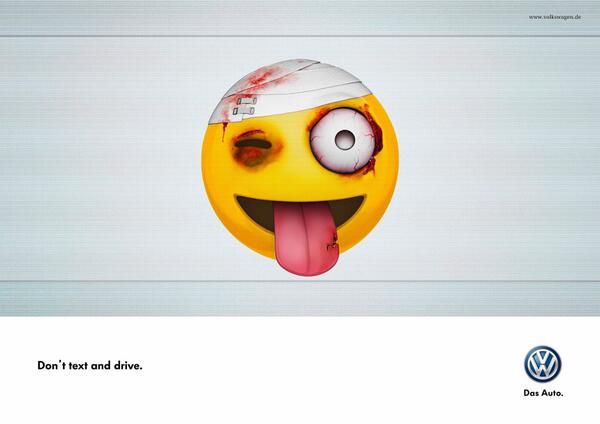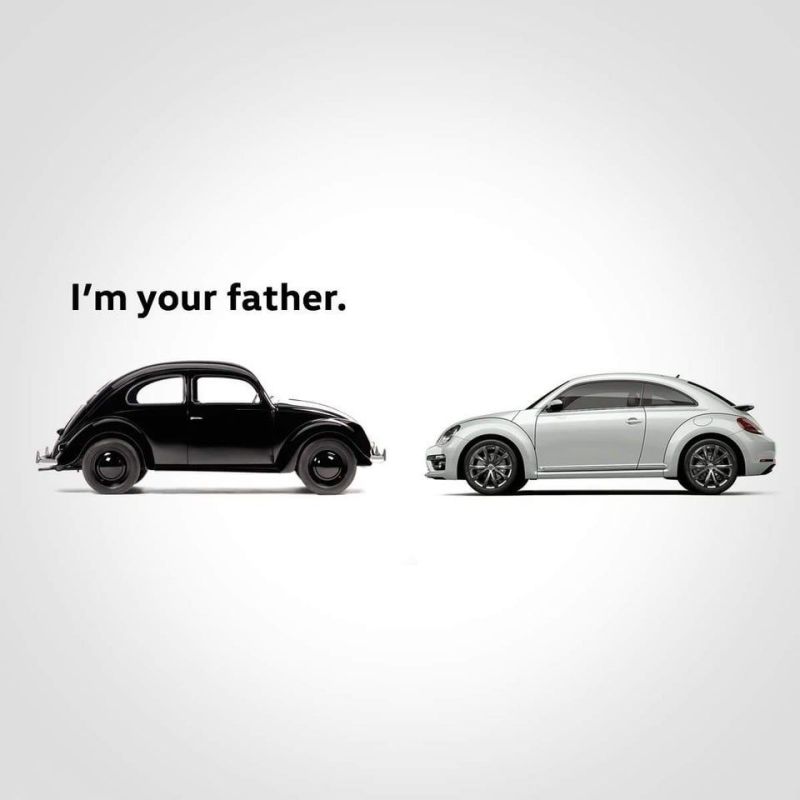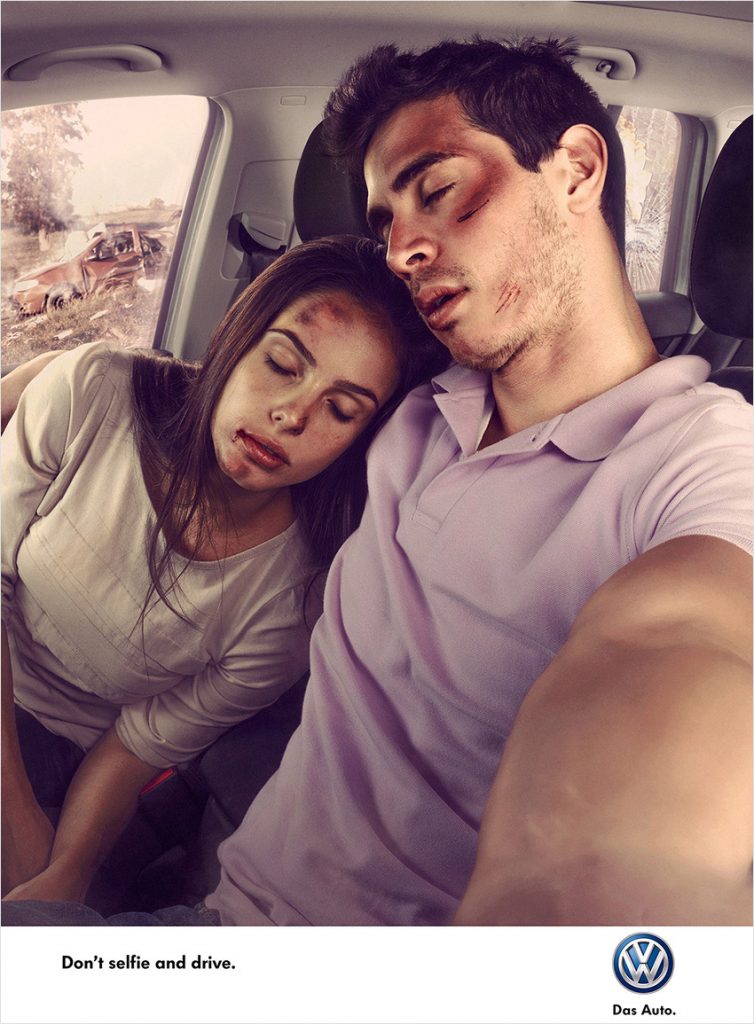
Tag: VW
♦️ VW Don’t Text and Drive

♦️ VW I’m your Father

♦️ Volkswagen Don’t Selfie and Drive

💎 On the avoidance of regret being a much bigger factor in brand selection than the pursuit of perfection (I hope this TV isn’t a crock of shite)
Yet marketers very rarely acknowledge this distinction when debating the role of the brand – and it pays little attention to the job of being assuredly not crap – even though I suggest it is by far the more valuable economic role that brands play: not to be a promise of ultimate superiority but a cast iron assurance of pretty dependable non-shitness. The Fina ad is one good example. Even better is that great CDP ad for Smirnoff: “why waste money on real lemons”, which I can’t find, or the Volkswagen promise of reliability. But overall this proposition of “loss avoidance” is rare – most ads seek to boast a lot more than they reassure. Yet when you are handing over £1,000 to buy that flat screen TV, how much of your brain is worried about whether it is the best TV you can buy for £1,000, versus the part of the brain thinking “I hope this TV isn’t a crock of shite?” I’d put the ratio at about 1:2.
Because we all work in the field, marketers and advertising people are by temperament maximisers when it comes to brands. They use the fine distinctions between them to delineate themselves and to highlight their individuality.
Excerpt from: Rory Sutherland: The Wiki Man by Rory Sutherland
♦️ The Beatles

💎 On the false distinction between emotional and rational ad campaigns (demonstrated best by Volkswagen)
In advertising, we assume the only way to get an emotional response is with an emotional appeal.
But Bill Bernbach knew that isn’t true.
Look at the history of Volkswagen advertising.
For fifty years they did product demonstrations.
And they build a brand that has massive emotional appeal.
Ask anyone about VW and they’ll say “reliable”.
That’s an emotional response based on rational advertising.
Because a rational demonstration can have a more powerful emotional affect than something vacuous designed purely to appeal to the feelings.
Done properly, reason is emotion.
Excerpt from: Creative Mischief by Dave Trott
♦️ VW delivering an effective price-led ad

♦️ VW using an endorsement, when they’re not allowed to use the endorsement

♦️ VW communicating great value without eroding brand value

♦️ VW using efficiency to highlight efficiency

♦️ VW conveying fuel efficiency brilliantly

💎 On confident branding (Renault versus Audi)
The third marker, I would say, is the most influential of all, yet hardly anyone spots it even though it is staring you in the face. This is the one that arises from Hegarty’s decision not to translate the slogan. By leaving the slogan in the original German he enabled the brand to occupy the position of being not just German, but being uncompromisingly German.
Most foreign cars in the 1980s tried to play down their foreign origins. And in order to demonstrate that their cars were “anglicised,” advertisers used English slogans in their advertising. BMW used the slogan “The Ultimate Driving Machine,” Renault in their 1992 Clio ad used “A certain Style,” and VW in their iconic Princess Diana Golf ad used “If only everything in life was as reliable as a Volkswagen.” But Audi, by sticking to their original German slogan, effectively gave out a super-confident message that their cars were German and proud of it, and that they were not prepared to compromise them by changing them in any way. If people wanted a hybrid adapted to their local market then they could buy one of the other marques, but if they wanted the real thing then they should buy an Audi.
Excerpt from: Seducing the Subconscious: The Psychology of Emotional Influence in Advertising by Robert Heath
💎 On the financial value of the framing effect of brands
This framing effect of brands is not marketing hype; it increases the perceived value and the willingness to pay a premium price — even for objectively identical products. The VW Sharan and the Ford Galaxy are identical cars – both produced in the same factories – but consumers have been willing to spend a premium of €2,000 for the frame that the VW brand added. In the UK, Virgin Mobile has higher perceived network quality and satisfaction scores than T-Mobile despite the fact that it uses the exact same network.
Excerpt from: Decoded: The Science Behind Why We Buy by Phil Barden









